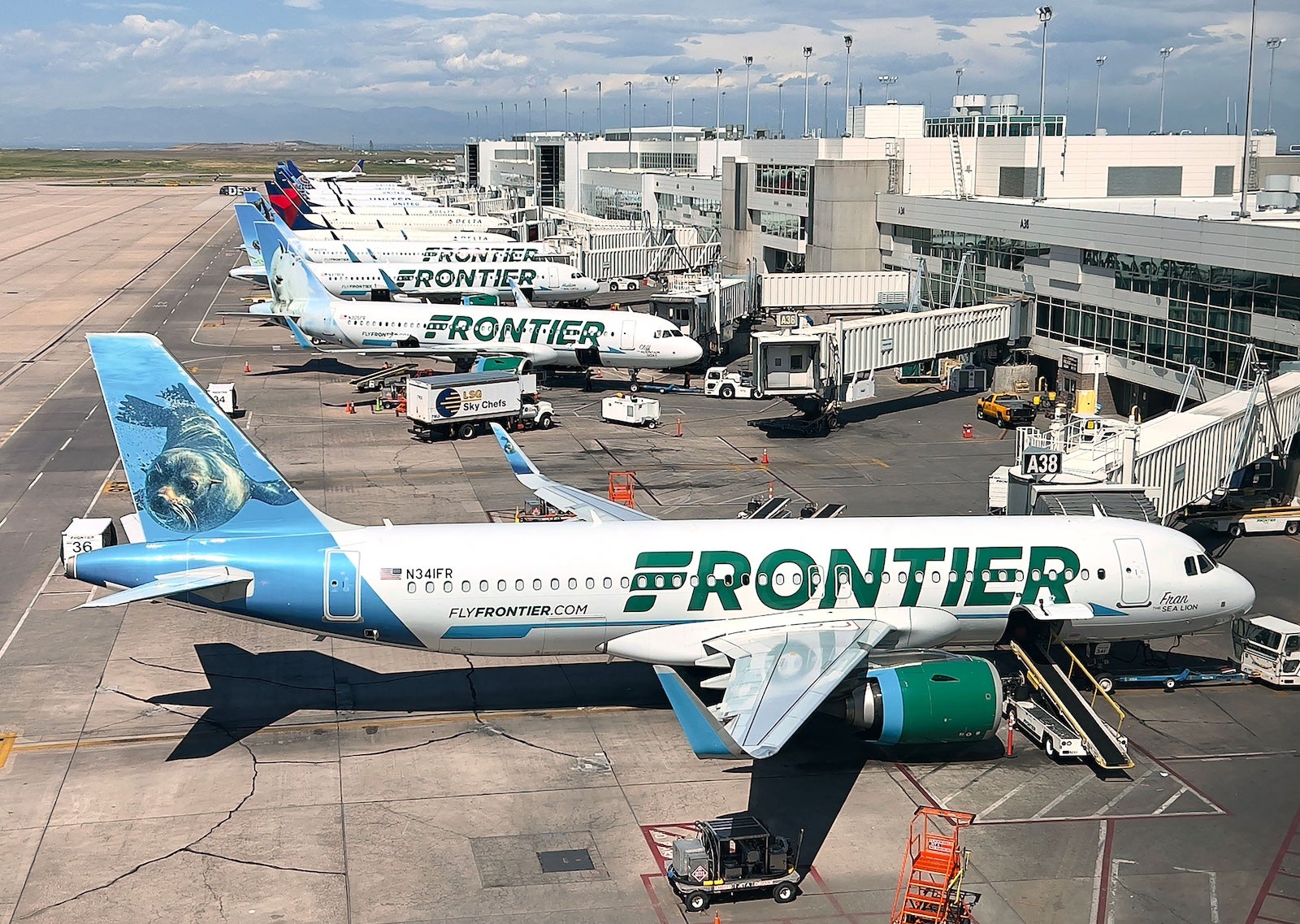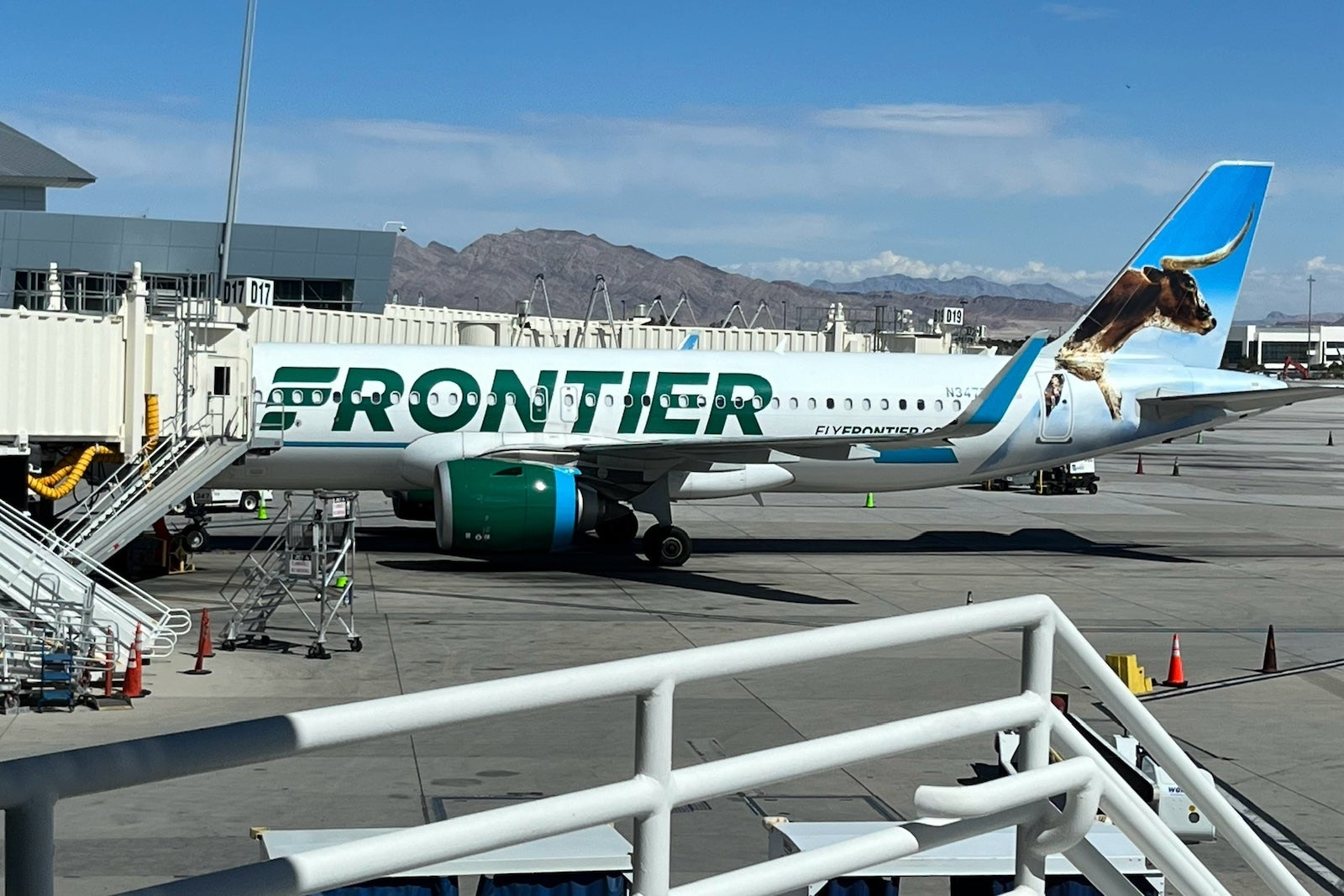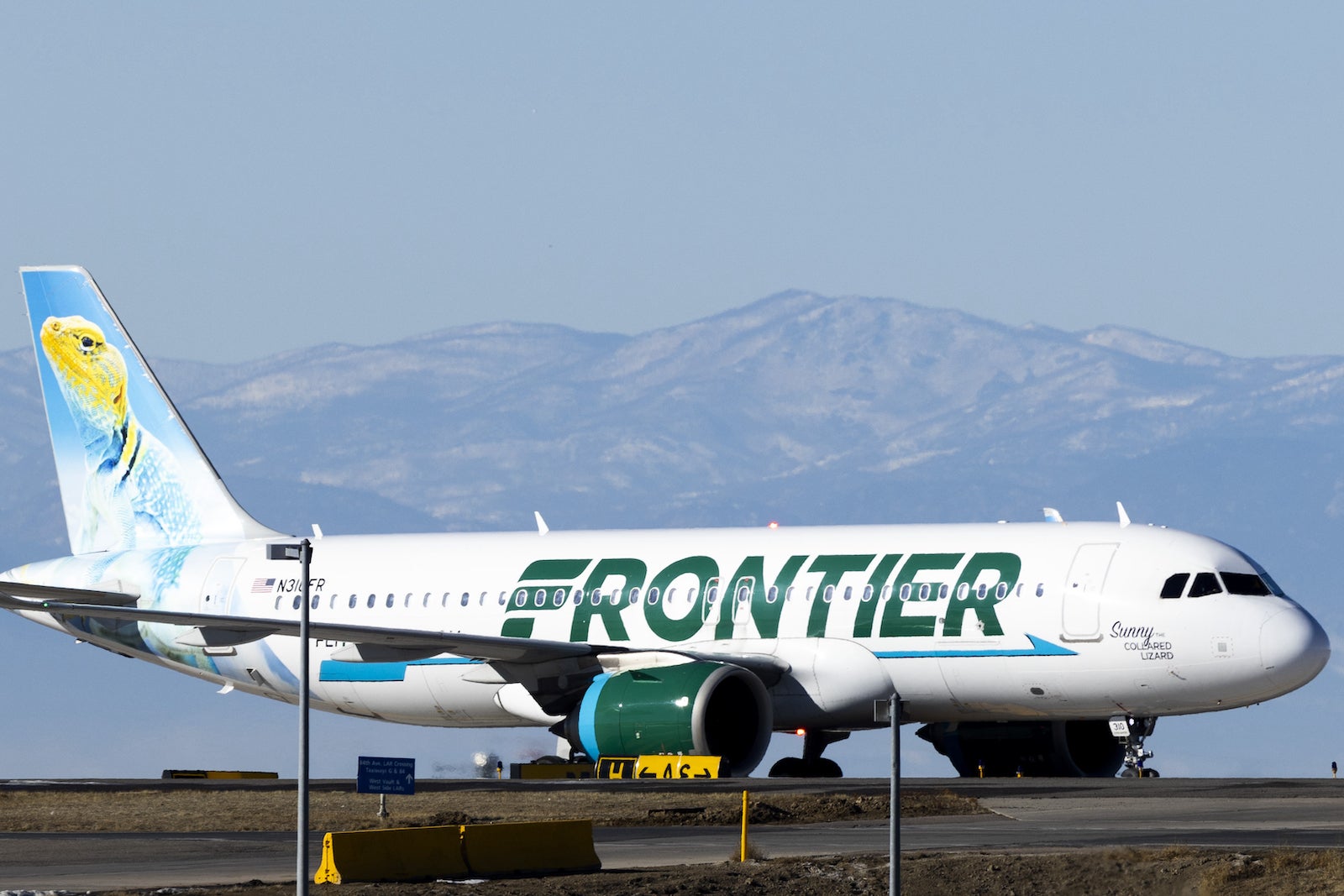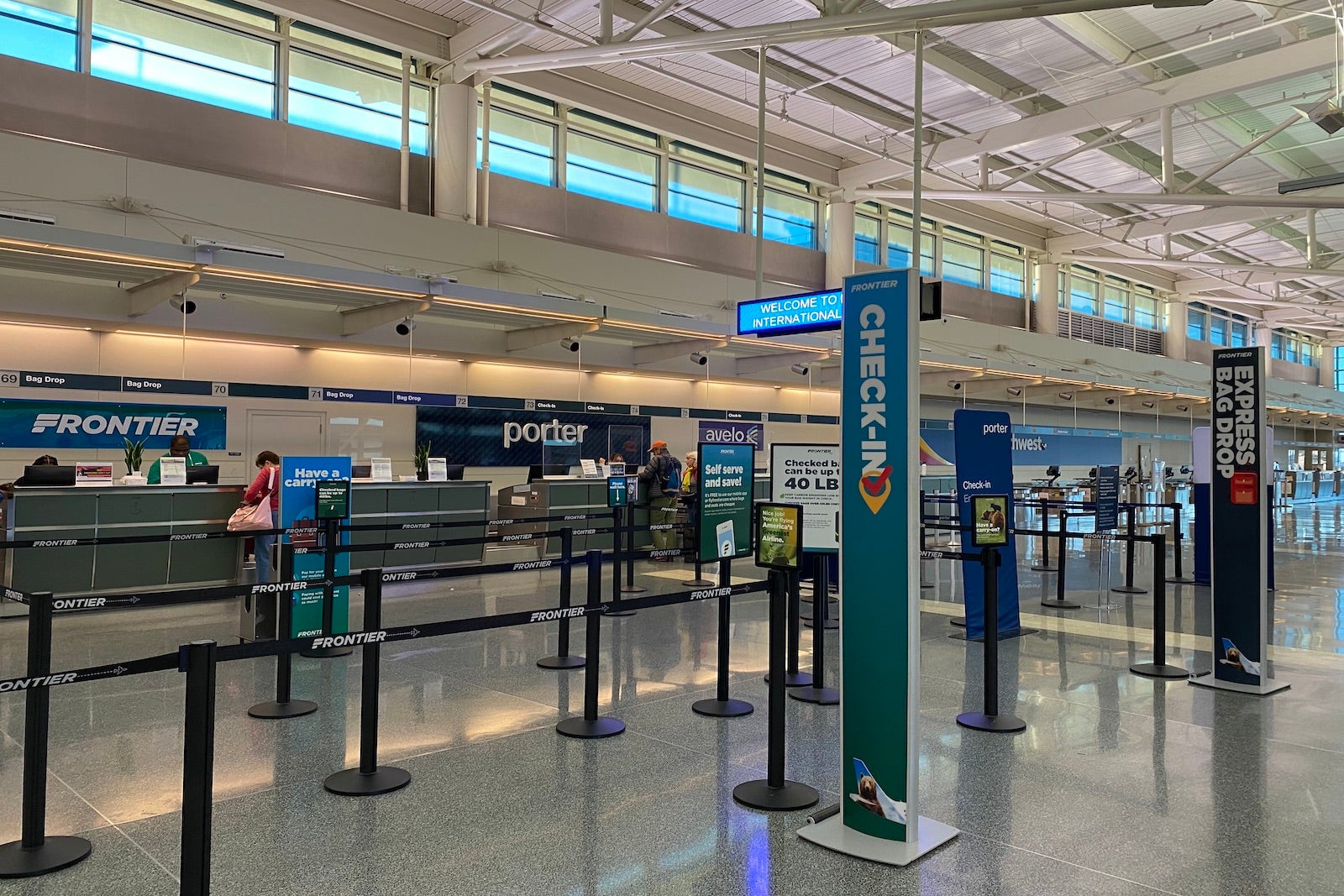Frontier Airlines CEO Barry Biffle appears to have heard enough of the criticism of the U.S. ultra-low-cost airline industry, even as the company anticipates further financial losses in the coming months and plans to reduce flights on certain days of the week and delay deliveries of new aircraft for years.
Speaking to analysts last week, Biffle insisted that the airline’s efforts to reduce costs, a hallmark of low-cost airline strategy, have positioned Frontier well for 2025 and beyond.
“Our cost advantage is real, long-lasting and sustainable,” Biffle said during a conference call Thursday.
Biffle made the statement with a certainty and cadence reminiscent of those often used in recent months by United Airlines CEO Scott Kirby, though Biffle had a different take on the plight of ultra-low-cost airlines.
For months, Kirby has boasted of United’s “structural, permanent, and irreversible” lead atop the U.S. industry (along with Delta Air Lines). He has also criticized the business models of low-cost carriers at the same time, as low-cost carriers have struggled to regain financial stability amid demand for premium seats and international travel that has heavily favored larger network carriers.

That criticism (echoed more subtly last month by Delta CEO Ed Bastian) has grown harsher as the U.S. airline industry faces a decline in domestic fares (and profits) in 2024, driven largely, airlines say, by a glut of flights that has flooded the industry with fierce competition, forcing major route shakeups and radical changes in how some airlines run their businesses.
“The pressure that other U.S. airlines are feeling today is largely due to their unprofitable flights in many domestic markets. It was always inevitable that carriers would start canceling these unprofitable flights,” Kirby told analysts last month in more measured comments than when he predicted the demise of some low-cost carriers during an industry podcast earlier this summer.
Biffle, in a seemingly provocative assessment on Thursday, deflected some of the blame for the industry’s challenges and argued that larger airlines have also flooded the industry with flights, driving down fares.
“We see several hundred routes for high-cost carriers that have increased capacity by at least 50% or more over 2019 … and I think there are over 150 where capacity has more than doubled,” Biffle said. “The best way to stop losing money is to stop doing things that are losing money.”

Daily Newsletter
Reward your inbox with TPG’s daily newsletter
Join over 700,000 readers for breaking news, in-depth guides, and exclusive offers from TPG experts
Frontier’s challenges are profound
Of course, Frontier has had its share of problems lately when it comes to money.
Sure, the company was profitable in the second quarter of this year, but the second quarter is the primary earnings season for all airlines. As such, it’s when many airlines hope to fill their coffers before other parts of the year with lower demand.
In 2024, Frontier began what is perhaps the most radical corporate restructuring of any U.S. airline.

Network shock
The airline’s network change has been profound: 114 new routes have been announced since January and dozens of others have been cut.
About a third of the airline’s new routes were unsuccessful, executives revealed Thursday, including a number of added flights in and out of Louis Armstrong New Orleans International Airport (MSY). Executives argued that was consistent with historical trends.
In 2024, the airline opened two new bases in Ohio, launched its first-ever service from New York’s John F. Kennedy International Airport (JFK), and increased its focus on cities like Atlanta, Charlotte, Chicago, and Dallas, hubs for larger airlines, in an effort to reduce exposure to historically popular tourist destinations like Orlando and Las Vegas, where particularly fierce competition has dented airline profits.
Revised business strategy
Frontier also overhauled the way it displays ticket prices and additional fees, offering customers four concrete packages up front, one of which includes a type of seat commonly seen in Europe when flying business class, with extra legroom and an empty middle seat.
The results of the move have “far exceeded” Frontier’s expectations, the airline said Thursday, but it stressed that the success was more due to the company inspiring existing customers to “shop” for a higher fare, rather than attracting customers who fly on other airlines.
Cut on Tuesday and fly on Wednesday
More changes will begin to occur as we enter mid-August. Frontier is cutting Tuesday and Wednesday flights and focusing on weekdays with higher demand. Less than 30% of the airline’s September schedule will fly on off-peak days, executives said, down from about 40% a year ago.
“We looked at where we make money and where we lose money,” Biffle said. “The middle of the week was a waste of money.”
Expected losses
Frontier expects to lose even more money in the third quarter, with losses forecast at least 3%.
And as it scales back plans to expand its flight network in the near future, the airline is delaying deliveries of more than 50 Airbus jets beyond 2028, about a third of the planes it expected to receive in the next four years.

CrowdStrike Compensation Request
Frontier’s challenges also mean it has less financial capacity to handle issues that arise outside of its control, such as the recent CrowdStrike outage. Frontier estimates it lost about $20 million during the episode, which affected several U.S. airlines and many industries around the world.
“You would expect us to try to recoup every penny,” Biffle said Thursday, noting that the airline’s new “round-trip” flight strategy, which calls for planes and crews to depart and return to the same city each day, has helped it recover quickly.
He added that this was a key reason why the airline (rarely celebrated for its operational reliability) recovered much more quickly than the usually reliable Delta Air Lines, which went into a five-day slump and now says it has lost about $500 million because of the fiasco.

Frontier: “We are well positioned for 2025 and beyond”
Yet the airline insists that things are improving.
Frontier recently reached its goal of 80% round-trip flights, which executives say is key to reducing costs and running operations more punctually.
Also, in less welcome news for consumers but good for airlines and their shareholders, Biffle said September fares are rising as the U.S. airline industry is undergoing dramatic network changes; several airline executives have spoken of a “turning point” for fares in August.
Still, September rates are trending below 2023 levels, said Hayley Berg, chief economist at booking app Hopper, and it’s already a great time of year to find good travel deals as peak summer demand eases.
Frontier also expects that the recent introduction of a business-oriented travel product could help the airline reach more travelers beyond its historic leisure clientele.
Furthermore, with recent Wall Street volatility suggesting economic weakness, Biffle argues that Frontier may be in a unique position.
“Walmart, Costco [and] “Low-cost carriers win in recessions,” he told analysts.





